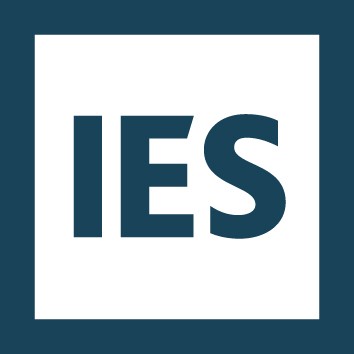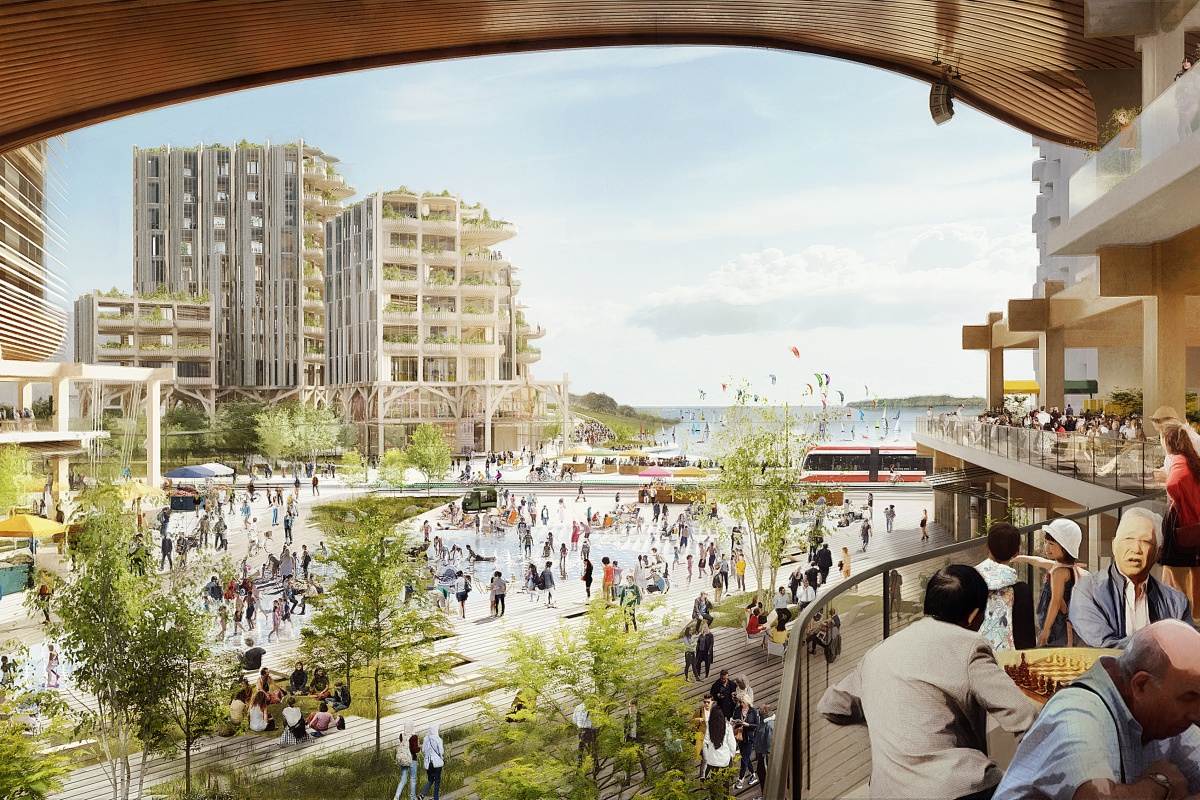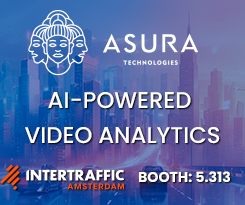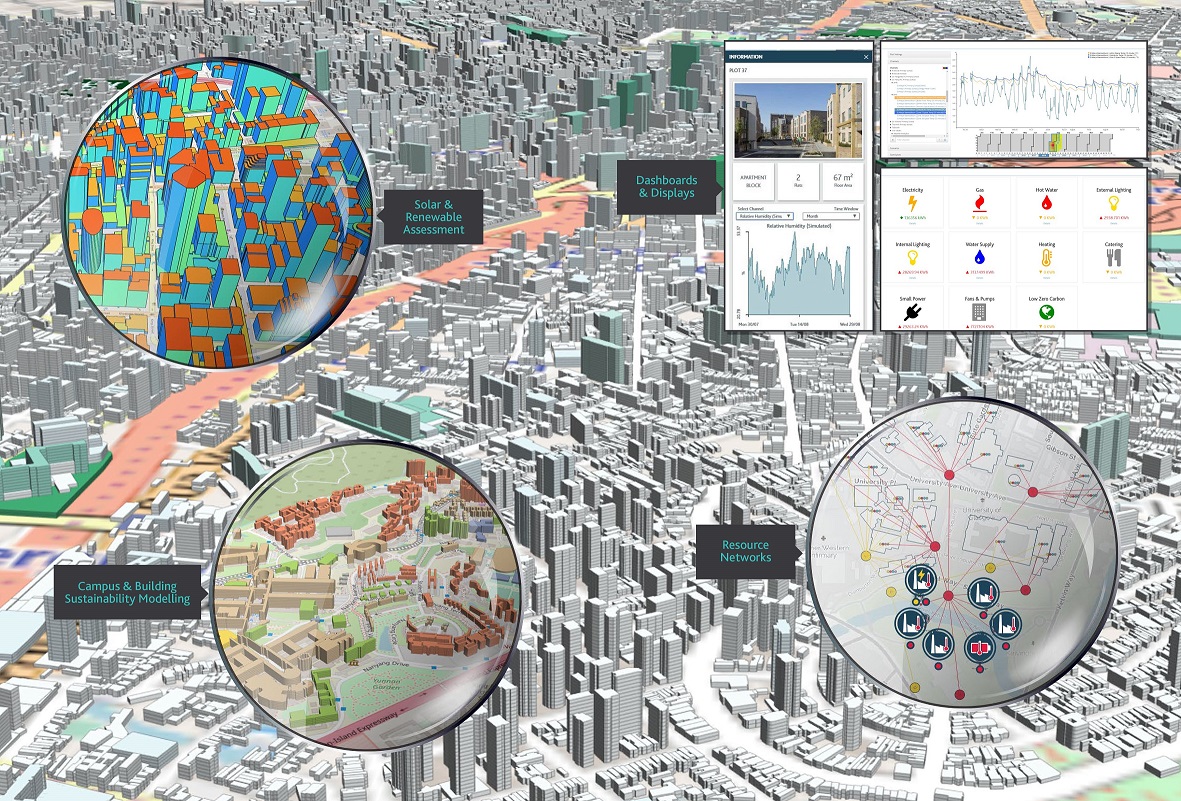
Photo: IES-icl-graphic
Why digital twin technology can help cities become sustainable
17 April 2019
The built environment currently accounts for 40 percent of the world’s energy use, meaning buildings and cities have the potential to make the biggest impact in reducing carbon emissions globally.
Climate reports over the last six months have made clear that time isn’t on our side. Climate change is not something that is going to happen far into the future–it is happening now. The research shows that warming the planet more than 1.5°C is a real threat to its liveability, and the way things are going this 1.5°C temperature safety guard could be exceeded in as little as 17 years.
We have a small window to really make a difference, but the question many are struggling with is ‘how?’
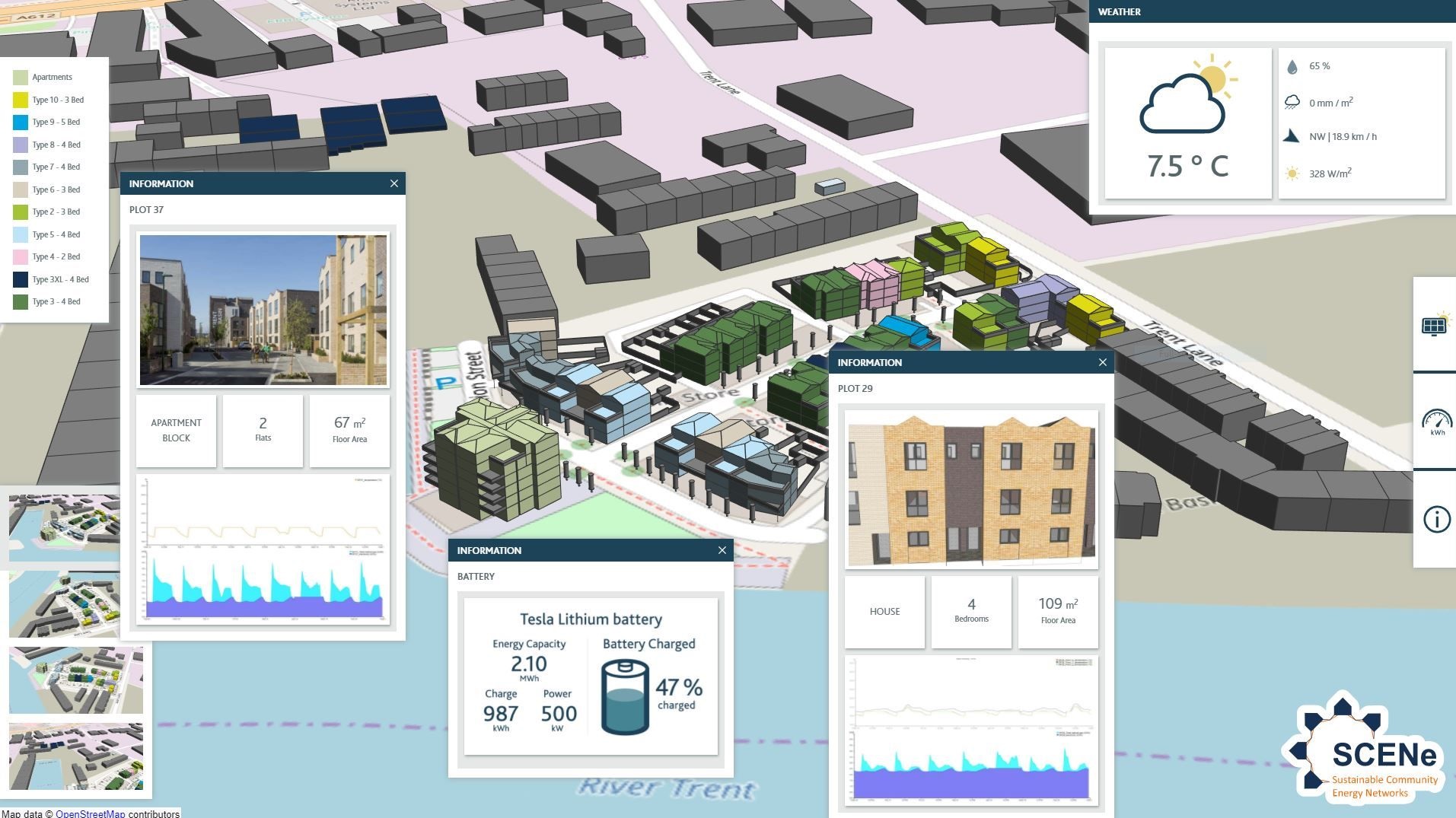 Fortunately, the technology to do this is not in the future. Technology that can significantly reduce the impact that buildings and cities have on the environment is available now, with new developments continuing to emerge at an incredible pace.
Fortunately, the technology to do this is not in the future. Technology that can significantly reduce the impact that buildings and cities have on the environment is available now, with new developments continuing to emerge at an incredible pace.
One such development is the ICL (Intelligent Communities LifeCycle)–a new cutting-edge digital twin technology from IES. Comprising a suite of interconnected decision support tools, the ICL facilitates the planning, design and operation of energy efficient and sustainable cities, communities, campuses, portfolios, buildings and local networks.
By linking IoT (Internet of Things) data, sensor readings, open data or any other data source into one interconnected platform, the ICL enables investigation of built environment performance at any level. Users can simulate entire cities, portfolios and communities, fill in gaps with simulated data, analyse how things will look and behave in a wide range of scenarios, investigate options to dramatically reduce reliance on fossil fuels, and create bespoke dashboards to communicate and drive engagement.
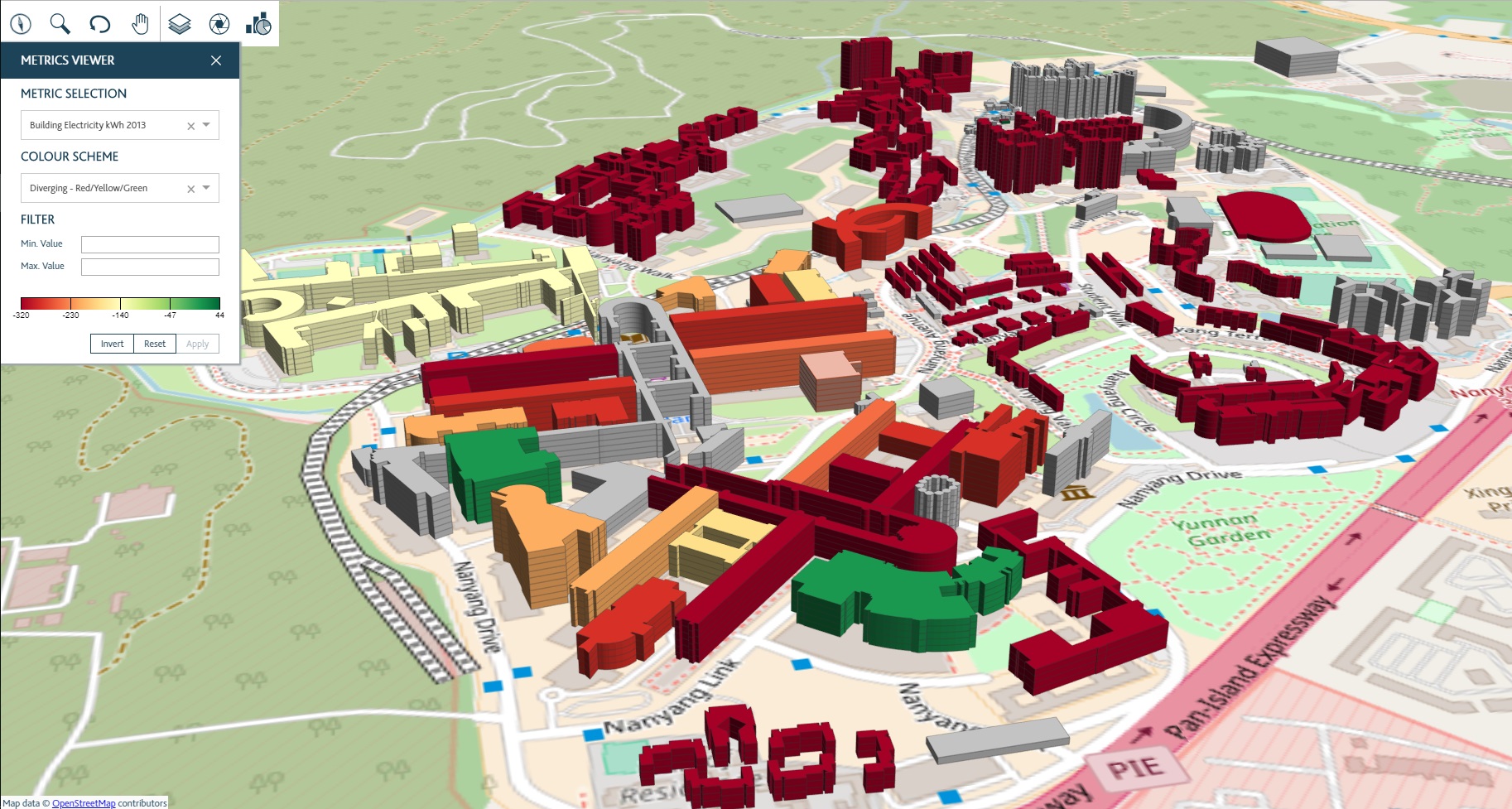 Through pilot projects, the technology has already delivered an interactive 3D visualisation and master planning model for Nanyang Technological University in Singapore, which uncovered campus-wide energy savings of 31 percent and US$4.7 million cost savings.
Through pilot projects, the technology has already delivered an interactive 3D visualisation and master planning model for Nanyang Technological University in Singapore, which uncovered campus-wide energy savings of 31 percent and US$4.7 million cost savings.
It has also been used to create a prototype community interaction model that enables real-time visualisation of energy data within the Trent Basin community in Nottingham, UK. The model includes information on renewable energy generation and storage, alongside energy consumption data, and general information about the homes.
Project examples like these prove it is possible to revolutionise how we manage, interact and operate the buildings in our cities and local communities, especially as local energy generation becomes increasingly the norm.
“I am very excited to be bringing this unique innovative technology to the market,” says Don McLean, Founder and CEO, IES. “The IES team have been working extremely hard over the past few years to develop this sophisticated suite of tools that will revolutionise the way we plan and design communities and use energy, whether that be a university campus, city or entire continent.”
“Climate change is a very real threat, and much more imminent than most people realise. Over the last 25 years we’ve built a solid reputation as a leading innovator in sustainable analytics for individual buildings and we’ve made a huge impact, eliminating the need for around 30 power stations to be built.”
“With the ICL we can now apply sustainable analysis to communities of any size or purpose, enabling people to look at energy use holistically at a much larger scale,” he adds. “This technology brings the opportunity to make a massive difference to the fight against climate change, and secure a much better future for our children and future generations.”
On 16 April IES launched the Intelligent Communities Lifecycle (ICL), a new range of digital twin technologies to help you create your own sustainable, intelligent community.
IES are pleased to announce that the second instalment in their series of ICL web demos will take place on 30 May. In this session, IES CEO & Founder, Don McLean, will provide more detail on each ICL product and their capabilities, how they can be used and how all the products link together.
Make sure you don’t miss this opportunity and register now for the session that best matches your time zone:
- 3pm AEST – https://register.gotowebinar.com/register/6769233894896381954?source=press
- 11am BST – https://register.gotowebinar.com/register/2428088210041600514?source=press
- 10am MDT – https://register.gotowebinar.com/register/2514473540101092354?source=press
Brought to you by:


